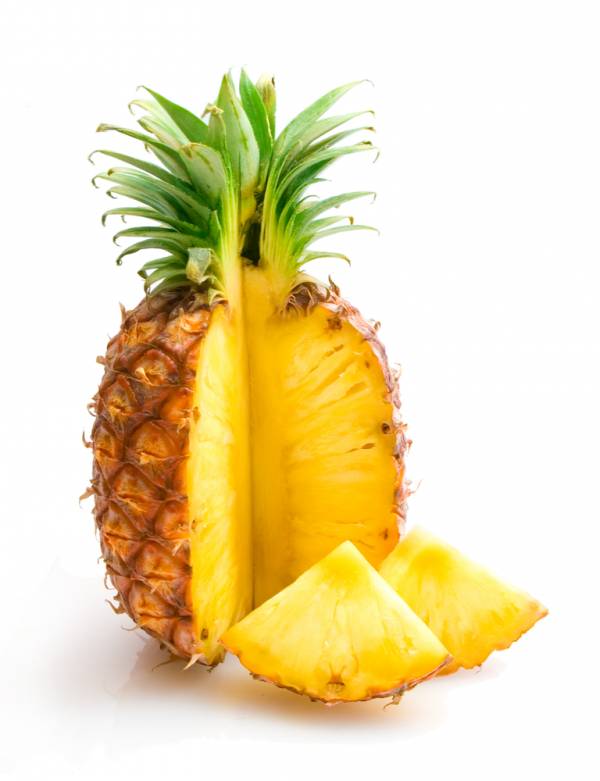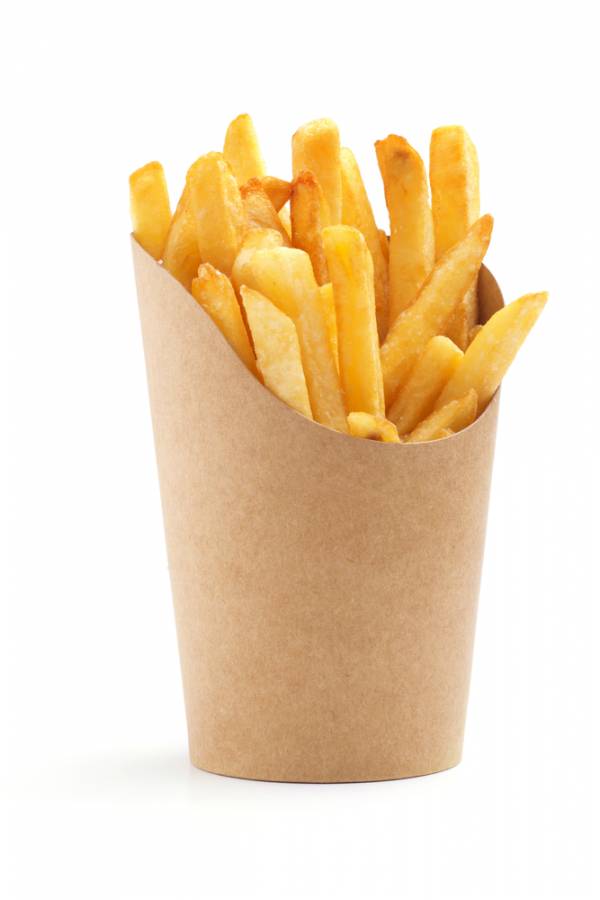Any athlete who pounds his or her body week in and week out with PRs, 1RMs, triples and doubles, sprints, long weekend runs, and the list goes on, is inflamed in some way. These activities all have a profound impact on the body. Not only do they initiate increases in strength, muscle growth, and increased endurance, but they also increase the amount of inflammation in the body. This inflammation could be from stress and the subsequent cortisol release into the body, the swelling of joints, or the breaking down and building back up of muscle protein.
This inflammatory response in most cases will be the result of micro-traumas affecting muscles, connective tissue, joints, and bone. These micro-traumas are what allow your body to adapt and withstand a similar workout in the future. In fact, regular exercise can even help an athlete adapt enough to lower the level of inflammation in the body. But without the proper level of nutritional support or knowledge of the foods that could cause you inflammation issues, you could be fighting an uphill battle.
This week I will discuss what foods and supplements help to reduce inflammation and what foods could be causing increased inflammation in the body. Unless you are eating and supplementing to account for this, you could be seriously impeding your results and negatively impacting your training sessions.
Anti-Inflammatory Foods and Supplements
The following are some of the foods and supplements that should be added to your diet to help alleviate and control inflammation in the body.
1. Fish Oil – Specifically it is the EPA and DHA found in fish oil or from eating cold-water fish like tuna or salmon that has anti-inflammatory properties. The omega-3 fatty acid can help with joint swelling and inflammation generally caused by the over consumption of omega-6 fatty acids from red meat.
2. CoQ10 – This oil-soluble, vitamin-like substance can be classified as an antioxidant and significantly reduces inflammation and oxidative stress in the body, especially when combined with natural vitamin E. Unlike other antioxidants, CoQ10 can inhibit both the initiation and the propagation of lipid and protein oxidation in the body.
3. Probiotics – Probiotics from either supplements or fermented foods help to build immunity and control infection caused by underlying inflammation in the body by supplying the body with good gut bacteria.
4. Juicing – The process of juicing breaks the cell walls of fruit and vegetables, making the nutrients more accessible and allowing the body to quickly absorb mega doses of vitamins, minerals, and antioxidants, all of which can help combat inflammation.
5. Broccoli – Broccoli is an excellent source of vitamins C and K, beta-carotene, and calcium, giving this humble vegetable great anti-inflammatory properties.
 6. Pineapple – Along with being packed with vitamin C, pineapple also contains bromelain. Bromelain helps to break down proteins, aids in digestion, reduces swelling, and can even improve blood circulation.
6. Pineapple – Along with being packed with vitamin C, pineapple also contains bromelain. Bromelain helps to break down proteins, aids in digestion, reduces swelling, and can even improve blood circulation.
7. Ginger – Used for centuries for medicinal purposes, ginger shares many properties with NSAIDs (non-steroidal anti-inflammatory drugs), suppressing pro-inflammatory molecules known as prostaglandins with little to no side effects compared to NSAIDs.
8. Turmeric – One of the main spices added to curry, giving it its distinctive yellow pigment, turmeric contains curcumin. Curcumin blocks several inflammatory chemicals in the body. Like ginger it can prevent the production of prostaglandins and be used like NSAIDs with the added benefit of also being a great antioxidant.
9. Extra Virgin Olive Oil – Used in Mediterranean cultures, olive oil helps to fight inflammation in the body. The monounsaturated fats in olive oil are turned into anti-inflammatory agents that help to lower the risks of both asthma and arthritis, and even help to protect the heart.
10. Sweet Potato – Packed full of vitamins B6 and C, manganese, beta-carotene, and fiber, these amazing potatoes are a great addition to any diet. Working in concert, these nutrients are powerful antioxidants that help to heal inflammation in the body.
Foods and Supplements to Avoid
Although not all of the below will cause every person a noticeable issue, in a large portion of the population they do contribute extensively to increased inflammation in the body. A person may even have an issue and not be aware of it or attribute the cause to something else. Knowing what can increase inflammation is a handy tool. If you are already causing inflammation due to your training, there is no need to further increase the problem from uninformed or poor food choices.
The following are some of the biggest nutritional contributors to inflammation in the body:
1. Hydrogenated and Trans Fats – Found in margarine, baked goods, and many processed foods. The oils used are generally poorly made and inferior. Trans fats increase the levels of LDLs (bad cholesterol) while lowering levels of HDLs (good cholesterol) in the body. They have also been found to promote inflammation, obesity, and resistance to insulin.
2. Red Meat From Feedlots – Commercially produced meats are often fed grains like corn, increasing the omega 6 fatty acid profile. Overconsumption of omega 6 fatty acids in our diets promotes inflammation, as the the balance with anti-inflammatory omega-3 fatty acids is lost.
 3. Fried Foods – French fries, onion rings, and potato chips are all highly cooked products due to deep-frying. This produces glycotoxins or AGEs (advanced glycation end products) that are known to be inflammatory. AGES have been implicated in everything from Alzheimer’s to cardiovascular disease.
3. Fried Foods – French fries, onion rings, and potato chips are all highly cooked products due to deep-frying. This produces glycotoxins or AGEs (advanced glycation end products) that are known to be inflammatory. AGES have been implicated in everything from Alzheimer’s to cardiovascular disease.
4. Sugar – Sugar is not only an addictive substance but is highly inflammatory. This is because sugar raises insulin levels in the body that in turn trigger an immune response.
5. Dairy Products – The body often has issues in processing lactose and casein from dairy products. Most individuals probably don’t even know they have an issue. Stick with fermented dairy products, as they should result in a lessened inflammatory response.
6. Wheat Products – Gluten intolerance is quickly becoming a major issue in Western society. Wheat is highly inflammatory and acid forming to certain individuals. Not to mention a major portion of wheat production is genetically modified, so avoiding it where possible is a positive thing.
7. Alcohol – Enjoying the odd beverage generally isn’t an issue, but overconsumption can cause a major burden on your liver and promote unnecessary inflammation in the body.
Understanding inflammatory and anti-inflammatory foods is important. Knowing what can be used to help alleviate or exacerbate inflammation in your body might just be the key you have been looking for to boost your next work out and keep your body in tip-top shape.
References:
1. Akhtar, N.; Haqqi, T. M. (2012). “Current nutraceuticals in the management of osteoarthritis: A review.” Therapeutic Advances in Musculoskeletal Disease 4 (3): 181–207.
2. “Dr. Weil’s Anti-Inflammatory Food Pyramid.” Dr Weil. Retrieved December 20, 2012.
3. “Ginger.” University of Maryland Medical Centre. December 2010.
4. Mishra S, Palanivelu K (Jan–March, 2008). “The effect of curcumin (turmeric) on Alzheimer’s disease: An overview.” Ann Indian Acad Neurol 11 (1): 13–9.
5. Covas MI. “Olive oil and the cardiovascular system.” Pharmacol Res. 2007 Jan 30.
6. Lopez-Garcia E, Schulze MB, Fung TT, Meigs JB, Rifai N, Manson JE, Hu FB. “Major dietary patterns are related to plasma concentrations of markers of inflammation and endothelial dysfunction.” Am J Clin Nutr. 2004 Oct;80(4):1029-35.
7. Wall R, Ross RP, Fitzgerald GF, Stanton C. “Fatty acids from fish: the anti-inflammatory potential of long-chain omega-3 fatty acids.” Nutr Rev. 2010 May;68(5):280-9.
Photos courtesy of Shutterstock.






